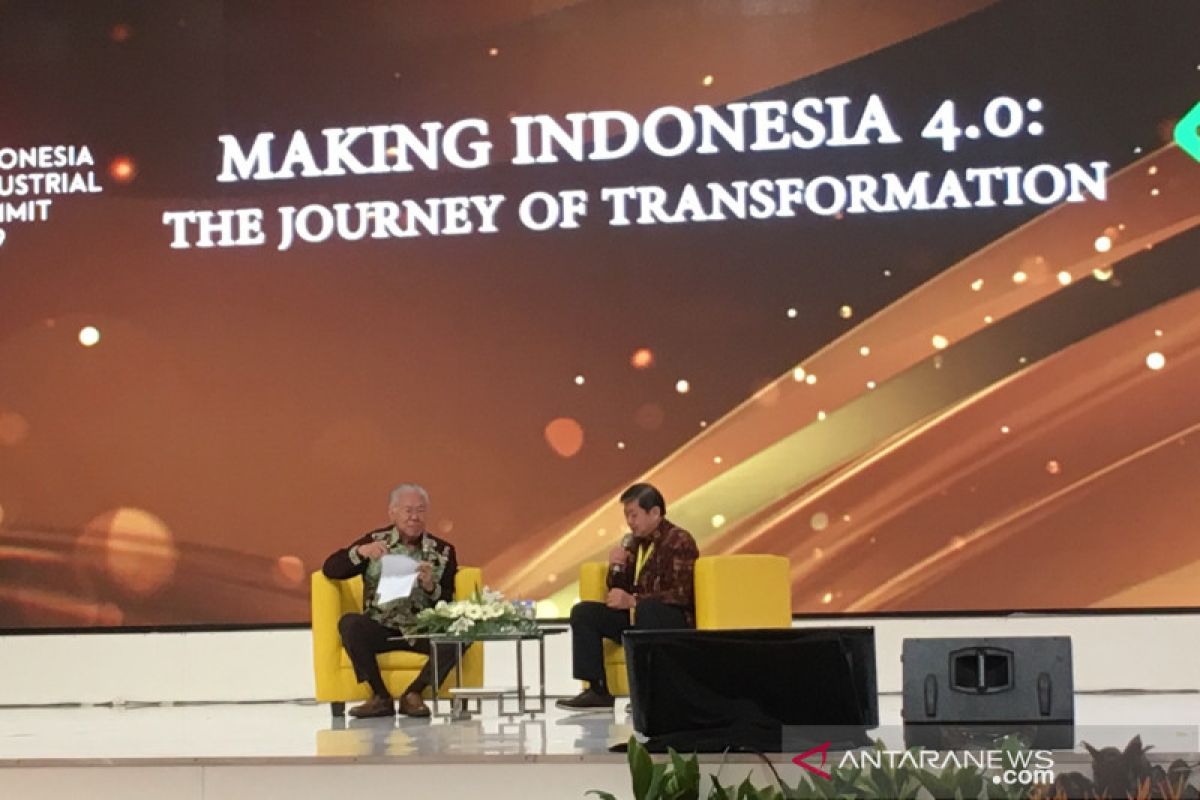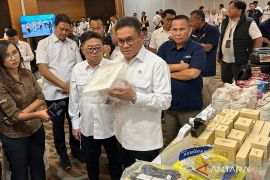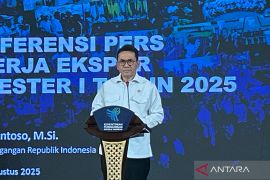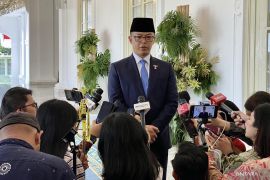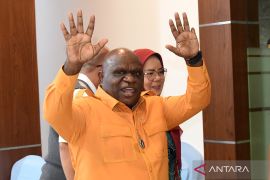We are not too worried about the first-quarter deficit, as our imports mostly comprise raw materials. This means our industrial growth increased.Tangerang (ANTARA) - Trade Minister Enggartiasto Lukita has maintained his composure and remained undeterred by the first-quarter trade deficit reaching US$193.4 million since the national imports mostly constituted raw materials for industries.
"We are not too hassled by the first-quarter deficit since our imports largely comprise raw materials. This indicates a rise in our industrial growth," the minister explained while attending the Indonesia Industrial Summit 2019 held at the ICE BSD, Tangerang, Banten Province, on Tuesday.
Lukita noted that in such a scenario, national industries showed growth in the areas of volume, capacity, and new investment, especially in the special economic zones.
"Hence, seasonal effects drive the trade deficit, while the nation's exports will rise in future since infrastructure and export-oriented industries will receive a boost," he explained.
Goods manufactured by the industries will serve as a substitute for imported items and drive export-oriented industries, thereby ultimately contributing to narrowing the trade deficit.
The Central Statistics Agency (BPS) reported that Indonesia had recorded a trade surplus of $540 million in March 2019 than $330 million in February.
However, Indonesia yet registered a trade deficit of $0.19 billion in the first quarter of 2019, BPS Chief Suhariyanto stated at a press briefing at the BPS Office, Jakarta, on Monday.
Indonesia's oil and gas trade balance has consistently recorded a deficit during the January-March 2019 period despite a surplus in the non-oil/non-gas trade balance.
"We are buoyant of realizing a surplus in the coming months, with the implementation of a government policy to boost exports while concomitantly reducing imports," he explained.
Suhariyanto has hinted at the global economic environment becoming increasingly challenging, thereby resulting in a decline in demand of Indonesia's export commodities in the main markets, while global commodity prices will keep fluctuating.
Center for Indonesian Policy Studies (CIPS) Researcher Putu Rusta Adijaya had earlier suggested that the government remain cautious over this year's February trade surplus of $330 million arising from a decline in imports, specifically of raw materials and auxiliary goods. The projected slowdown in China's economy and the US-China trade war were viewed as being the key triggering factors.
"The slowdown is a result of a decline in the demand from them. In fact, exports have remained a main component of China's economic growth," he emphasized.
The BPS head believes that Indonesia will have to bear the brunt of any policy adopted by the United States since it is among its main export destinations.
The United States, under President Donald Trump's presidency, has worked consistently to boost exports in the oil and gas sector while at the same time curbing oil and gas imports, including those from Indonesia, he remarked.
Translator: Sella Panduarsa Gareta, Suhart
Editor: Rahmad Nasution
Copyright © ANTARA 2019
